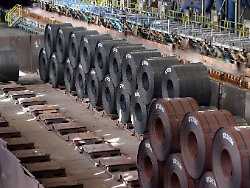Economists in Germany warn
How much longer will there be economic growth?
05/01/2022 10:47 am
In view of Russia’s war of aggression in Ukraine, economic experts are unanimous: economic growth in Germany is at risk. If energy supplies are stopped, further price increases, falling real wages due to rising inflation and a negative development on the labor market are conceivable.
From the point of view of German economists, an end to Russian energy deliveries to Germany and the associated drastic economic effects on the German economy have become more likely. “We have one foot in the blackout scenario,” said Allianz economist Katharina Utermöhl in a survey by the German Press Agency. She describes the scenario that would occur if energy supplies from Russia were stopped. From their point of view, the consequence would be economic growth of just 0.9 percent in the current year and a decline in economic output of 1.4 points in the coming year.
Marc Schattenberg, economist and labor market expert at Deutsche Bank Research, also warns of the possibility of the Russian energy embargo. “A halt to gas purchases by the EU and Germany has not yet been decided. However, an interruption by Russia cannot be ruled out,” he stressed. Most recently, Russia had turned off the gas supply to the two EU countries Poland and Bulgaria.
The chief economist of the state banking group KfW, Fritzi Köhler-Geib, sees it similarly. She, too, no longer considers economic growth in Germany to be a foregone conclusion. “Without an energy embargo, the German economy should still grow noticeably this year. But in view of the major downside risks, things could turn out differently,” she said. The danger comes at an unfavorable time: With the interrupted supply chains due to bottlenecks in China, the still existing impairments due to the fight against Corona, the lack of skilled workers and the price increases caused by the war, there is a whole mix of negative factors for the economy.
No good prospects
Economic expert Veronika Grimm from the German government’s council of experts also sees bad weather approaching for the German economy. “It can be expected that energy prices will remain at a high level. This is a major challenge for competitiveness in the longer term,” she says. Investments in the generation of renewable energies in Germany must now be made as quickly as possible. “Investments must now be made quickly so that enough systems can be built quickly,” said Grimm. “Energy policy is also security policy – that has now become clear.” Nor can the state be responsible for high prices in the long term.
KfW expert Köhler-Geib also considers the high prices to be a major economic risk. “Rising energy prices led to record inflation in March and are reducing purchasing power,” she emphasizes. Real wages are expected to fall this year due to persistently high inflation. “In the fourth quarter of 2021, agreed hourly wages rose by 1.1 percent – with an inflation rate of 5 percent,” the economist illustrated.
Allianz colleague Utermöhl even speaks of the “sharpest decline in real wages since German reunification.” “Households have never been as pessimistic as they are now. We expect a severe setback in consumption,” says Utermöhl. With a delay, the problem will also arrive on the labor market, which has been largely spared so far. Her Deutsche Bank colleague Schattenberg agrees: the positive development on the German labor market will come to an end at the latest when there is an interruption in Russian gas supplies.
